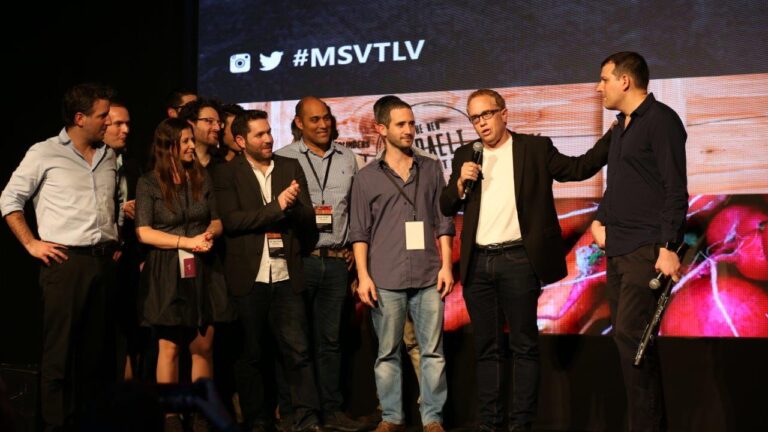Successful Israeli entrepreneurs don’t put much stock in the words “impossible” and “failure.” These terms simply motivate them to try harder and think differently.
So when the founders of Keep It Quiet (Kiq) reached only 9 percent of their crowdfunding goal earlier this year, they did not quit developing their unique product to enable multiple smartphone users to listen to the same audio output simultaneously, each at the volume he or she chooses.
Though the Indiegogo campaign didn’t attract enough donor dollars, it did attract the attention of Microsoft Israel, which invited Kiq to be one of 15 Israeli companies among 35 exhibitors at its recent Think Next innovation event in Tel Aviv.
ISRAEL21c stopped at the Kiq demo booth to learn about the device and the never-say-die attitude of its inventor, Ronen Dvir, and lead developer, Evgeny Hazanovich.
Dvir explains that Kiq’s “ultimate wireless audio solution” came out of his own need. He is hearing impaired, and when the kids were asleep he had difficulty hearing the TV at a lowered volume that was fine for his wife.
Kiq transmits sound directly from any audio source to any Wi-Fi connected device or multiple devices.
Download the free Kiq app to your phone, plug the device into the headphone port of your TV, computer or music player, and attach the phone’s headset. The volume on the audio source can be turned down to zero, while each user sets a personal volume level and can converse with other users through the embedded microphone (talking temporarily lowers the output volume so no one has to yell).
Dvir envisions an industrial version of Kiq as a cost-effective alternative for museums, guided tours, lectures and other situations where listeners may have trouble hearing properly.
If they get funding, Kiq could be on the market within a month, Hazanovich tells ISRAEL21c.
We cannot predict if they will succeed, but Israeli-style perseverance in the face of failure often does pay off.
Ruth Polachek, director of Citi Accelerator Tel Aviv, puts it this way: “Failure is an extremely important part of entrepreneurship. In some way it is one of the building blocks of it. Entrepreneurs that go through failure and have the perseverance and endurance to cope with it can handle anything that is thrown at them.”
For more information, click here.

















